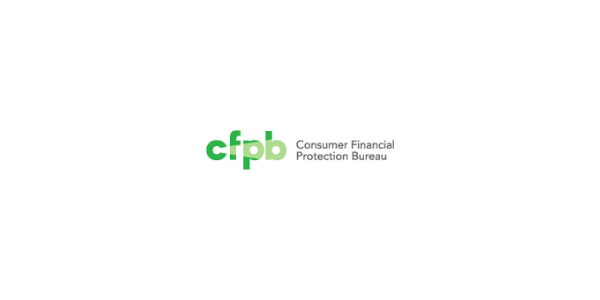Advertisement
What Every Broker Should Know About Bank Statement Loans

For the past few years, bank statement loans have been the product of choice for most non-QM originators. But despite all the attention that they have received, these loans have one of, if not, the lowest pull through rates of any non-QM product. I’d argue that there are two reasons for this. The first is, there continues to be a fair amount of confusion over how to derive the income calculation. The second is, our industry has been slow to understand who today’s self-employed customer really is and how diverse and complex their incomes may be.
 Ten or 15 years ago, the typical bank statement loan prospect was a doctor, a lawyer, a high-commissioned salesperson or business owner: Someone with a name on a building or at least on an office door. But that’s not the case anymore. Over the past decade, technology and the changing nature of work and opportunities have created millions more self-employed customers. According to FreshBook, a cloud-based HR platform, by the end of this year there will be 42 million self-employed Americans. They’re contractors, freelancers, Uber drivers, and yes, even mortgage brokers.
Ten or 15 years ago, the typical bank statement loan prospect was a doctor, a lawyer, a high-commissioned salesperson or business owner: Someone with a name on a building or at least on an office door. But that’s not the case anymore. Over the past decade, technology and the changing nature of work and opportunities have created millions more self-employed customers. According to FreshBook, a cloud-based HR platform, by the end of this year there will be 42 million self-employed Americans. They’re contractors, freelancers, Uber drivers, and yes, even mortgage brokers.There is also a strong connection between the Internet and entrepreneurship. Today, you don’t have to go to Wharton to start a business and be an entrepreneur, nor do you need a record contract to be an overnight sensation. If you’ve got talent you can put your music up on SoundCloud and Spotify, attract a million followers and make a million, all on your own.
When you stop and think about it, bank statement lending is a product for the times we’re living in. It creates financing for people who are willing to take a chance on themselves. Most of these individuals are financially responsible but in many cases, have been sidelined because they don’t fit into the box.
So Why The Confusion?
For one thing, non-QM is still a relatively new concept for many loan originators. In the aftermath of the mortgage crisis, the bulk of their business was FHA, or GSE, W-2 DU/LP loans. There was a simple formula to originate these loans: Take a couple of years of W-2s, throw them in the DU or LP spin cycle and you’ve got your decision.
To be successful at bank statement lending requires the active engagement of the loan officer and a strong partnership with the wholesaler. The wholesalers with the best origination track records in this category spend a lot of time and training to explain the nuances of income calculation to their partners, so there are fewer surprises and disappointments. These wholesalers should also offer technology and real-time support to identify possible errors and/or issues early enough in the process to save the loans.
Why do we go to these lengths? First of all because we want the loan; and secondly, because we know every deal is either a relationship builder … or killer. The last thing anyone wants is a situation where your referral partner’s best client is in the middle of escrow and someone missed the deposit on page 73 of the bank statement and the deal gets declined.
The diverse income streams of today’s self-employed borrower are the main reason why bank statement loans are so challenging. It’s not unusual for many prospects to have multiple sources of income: Think of a freelance designer, who works for Uber part-time and who also has rental income from Airbnb. This is definitely not the self-employed borrower circa 2000. In many cases, these borrowers work and live out of the same personal checking account that we’re pulling income from. So, what you have is multiple income streams and personal expenses, like Trader Joe’s and Nordstrom’s, mixed in with business expenses. This is often where things get muddy.
It takes skill and experience to work through these issues and calculate qualifying income. But there are also some common defects that can derail or at least delay bank statement loan approvals:
1. Incorrect bank statement analysis: Income deposits used for qualification must be “business-related” income generated by the business (for services rendered). Deposits that are the result of “line of credit advances,” “refunds” or “general” account transfers can mean that the borrower is simply moving money in order to qualify for the loan. As a result, these deposits are generally not considered in the income calculation. For example, if a $100,000 line of credit advance is counted as income, that would generate an additional $8,333/month in income. When this “income” is removed, that could cause the DTI to go from a qualifying 43 percent to disqualifying 60 percent.
2. Incorrect employment data on 1003: The business entity (employment) on the 1003 does not match the bank statement entity (business name). At the very least, this will lead to additional underwriting conditions. But often this defect is a sign that there are other red flags/disqualifiers that will prevent the loan from closing.
3. Invalid CPA: When a CPA/Tax Preparer Letter validates self-employment and expense factors, due diligence is performed on the CPA/Tax Preparer to confirm the person signing the letter has the authority to do so. Frequently, the preparer cannot be found or their license is suspended or inactive.
These are just a few of the red flags that a loan originator should be looking for with bank statement loans. Good wholesale partners will help you find and address these and others early on in the origination process, before they become deal breakers. With the right information and the right partner, bank statement loans no longer have to be a daunting prospect–they can be a growing revenue stream and a relationship builder for any shop.
Ryan Carry is the vice president of national sales for Impac Mortgage Corp. In this role, Carry is responsible for the growth and performance of the company’s Wholesale Division. He manages a team of more than 40 account executives, the client success team and the TPO marketing team, serving more than 1,000 originator clients nationwide.
About the author





